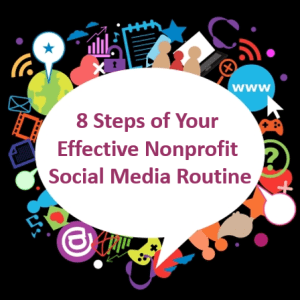I’m a HUGE proponent of blogging for nonprofits.
Blogs are media. They’re also social. They aren’t rocket science.
You can build a great blog. But why would you want to? Aha! That’s the question too many nonprofits fail to ask. So, today we’re going to ask and answer this important 21st century question.
If you’re not currently rocking a blog — and making it central to your content marketing strategy — I hope you’ll reconsider.
Which is why I recently hosted Jay Wilkinson of Firespring for a wonderful webinar on the power of blogging and thought leadership for nonprofits. Among his key take-aways were these:
Why You Must Become a Thought Leader
It’s how you get the word out about what you are experienced in. This is important so people think of you in this regard. Depending on your mission, when the topic of local theater comes up… or cancer research… or feeding the homeless… or equine therapy… or fighting human trafficking… you want folks to immediately think of you. For this to happen, you must truly commit to becoming a thought leader in your particular area.
- Commit to create and post content that adds value to the life of the reader.
- Be comfortable being the established expert.
- Inspire to take action.
Why You Should Blog
A blog is akin to a super-charged, dynamic website that will bring you many more visitors – and a lot more engagement — than your website does now. Did you know 70% of visitors to the average website never visit again? Done well, a blog drives traffic to you naturally… brings folks back for more… and even gets folks to share stuff you post on your blog with their own networks. It’s a hugely powerful tool for finding and engaging with people – your donors and potential supporters – and I’m not the only one who thinks so. The primary reasons to blog are:
- To educate and connect
- To establish yourself as an authority
- To get your messaging in front of more people
- To get more web traffic – Organizations that blog have 97% more inbound links, and that’s how you get found via search engine optimization (SEO)
To these reasons I would add: To generate more philanthropic support. That’s the bottom line. It’s why you’re building awareness and driving traffic to your website, right? So… let’s dive into how to make your blog the best tool in your integrated marketing and fundraising toolbox!
Details







